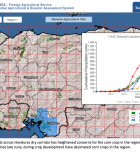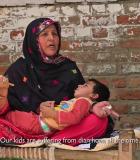USAID Agriculture and Economic Policy Project (AEPP)
The purpose of IFPRI’s PSSP is to contribute to pro-poor economic growth and food security through strengthened national capacity to design and implement evidence-based policy reforms. The overall goal is to enhance agricultural growth and economic development through strengthened Pakistani capacity for analyzing, advocating for, and implementing evidence-based policy reforms. Improved policy decisions will be based on better analysis and information, will create a more favorable and predictable investment climate for private enterprises, and will accelerate agricultural growth and economic development in Pakistan. PSSP objectives are to improve policy analysis and advocacy, build the capacity of selected GOP and non-government entities, institutions and individuals through knowledge sharing networks, and to increase their capacity for conducting research, analyzing information and developing sound policies.
Activity Description
PSSP’s four primary research priorities are as follows:
1. Agricultural production and productivity
2. Water management and irrigation
3. Macroeconomics, markets and trade
4. Poverty reduction (Income dynamics) and job creation (social safety nets)
IFPRI’s PSSP is a four-year, country-led, countrywide program covering a range of economic policies affecting economic growth and food security. PSSP was initially envisaged to support the Framework for Economic Growth (FEG) of the previous government, which was replaced by the current Vision 2025 strategy following the change of government in 2013. PSSP supported the Planning Commission for the development of the Vision 2025 document, which was unveiled in August 2014, and aligned its activities with the objectives outlined in Vision 2025.
PSSP is guided by a National Advisory Committee (NAC), chaired by the Planning Commission of Pakistan, with representation from USAID, and regional and provincial stakeholders. PSSP reviews its policy advisory activities with the NAC to inform and assist in the implementation of the GOP’s current strategic directions and related policy reforms.
Expected Outcomes
• Greater capacity among knowledge providers in the academic and research communities to generate policy research results that fill knowledge gaps on a needs basis, and to have increased impact on the design and implementation of Pakistan’s development strategy.
• Greater capacity among Policymakers and implementation agents to demand and use the results of research for policy dialogue and formulation. This includes provincial governments and departments in their revised roles and responsibilities under the 18th Amendment.
• A broader and more integrated knowledge community made up of researchers, Policymakers, civil society and private-sector stakeholders to support pro-poor policy dialogue and strategic priority setting at all levels of government.




